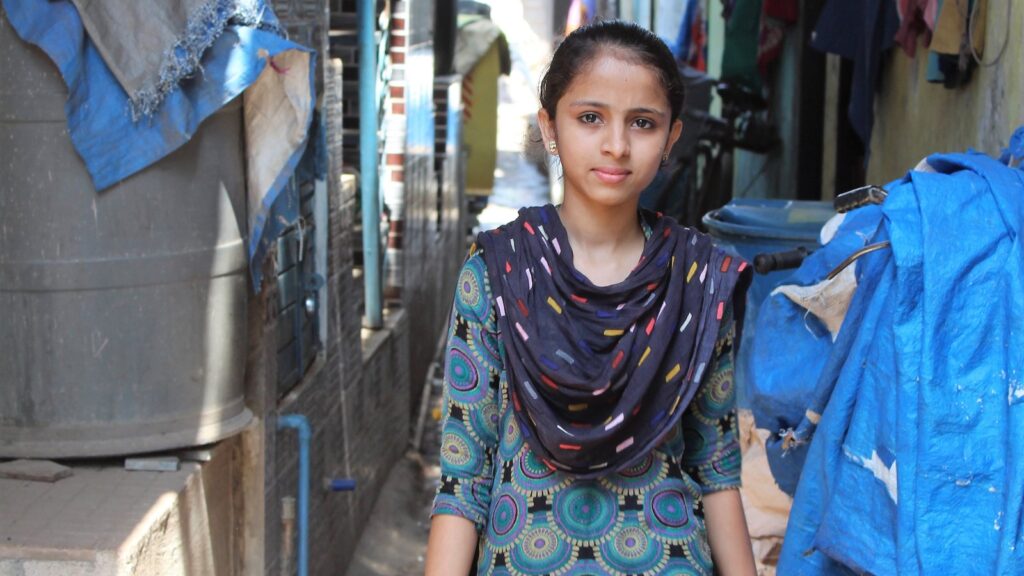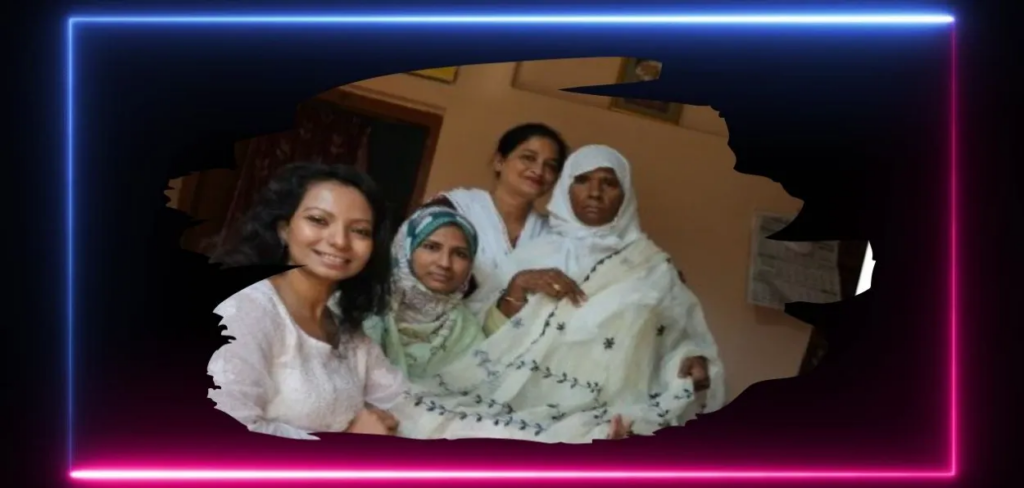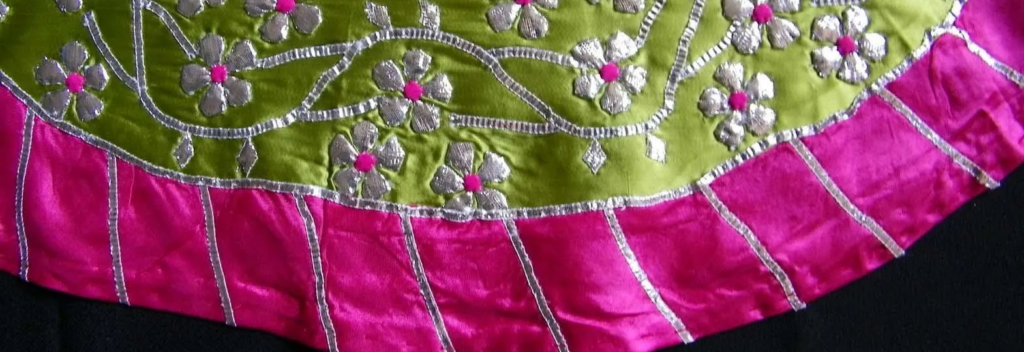Govandi-Mumbai, MAHARASHTRA :
An award winning activist and trainer, Saleha is an inspiration to many !

Period. Just the word alone has the power to make people uncomfortable, but why?
Troubled by the ubiquity of this discomfort, young Saleha decided to take it upon herself to break the stigma and lead the change in her slum in Mumbai city. An inspiring change-maker at 15, the story of Saleha is the clarion call for society at large to start talking about menstruation. It is indeed high time to not just talk but also celebrate these celebrate small steps towards change.
It is shocking that less than half of India’s 355 million menstruating women use sanitary napkins (SNs). These are not mere statistics, but a reality we can no longer ignore. For millions of women in India, the struggle begins with the lack of basic awareness about menstruation and therefore not following the right menstrual health and hygiene practices.
Saleha lives in the Govandi slums, located close to Mumbai’s biggest dump yard, with one of the lowest human development indices of the city. Her brave efforts despite the odds she faces every day may not end the problem that Govandi and even India faces at large but she is surely a part of the solution!
How did it all begin?
Saleha’s journey was not an easy one. Initially, she had minimal support from her family. After marrying off her elder sister, the family was faced with financial difficulties. Then as they faced the choice of sending either Saleha or her brother to school, they did what many families do. She was in class 8th then.
Saleha’s family mindset was only able to change with her extraordinary perseverance coupled with months of consistent effort put forward by Save the Children’s team. Today, Saleha is in class 11th and an active member of Save the Children children’s group in her area.
She was 12 when she first attended a menstruation session in her school.
She recalls: “We were taken to a separate class for the session and boys were not a part of it. I think even if boys don’t menstruate, they too should be educated about it,” says Saleha.
The fact that menstruation is one hush-hush topic that is usually avoided by our parents, teachers and the community.
As an active member of the children’s group, Saleha stood at the forefront of a unique child-led campaign called WASH4LIFE. In this campaign she strongly advocated water and sanitation issues in her community. Saleha has conducted more than 250 sessions on menstrual hygiene and other issues related to water and sanitation-issues over the last three years. She has been able to influence more than 2,500 adolescent girls who have adopted healthy menstrual hygiene practices. She does it through innovative (and fun) methods of messaging such as street plays, photo exhibitions and talk shows – reaching out to over 10,000 community members.
When Saleha first joined the group, she was very fascinated by the program, as it provided an opportunity for her and other children to understand the changes in their body at the time of puberty – something that was not discussed elsewhere. The girls also learned how to use sanitary napkins. She aspired to and then became a trainer very quickly thereafter.
“Twice or thrice a month we conduct sessions for groups of 30 girls. We conduct these sessions after school hours, with each session lasting three to four hours. I made many friends here and also gained confidence.,” she beams proudly.
Saleha remembers, “My father did not speak to me for days when I went against his wishes and conducted training sessions. My mother has only now begun to understand what I stand for. It was tough convincing her, but now she acknowledges the change this has brought about in all our lives.”
Today she has the support from her family, peers, and community.
Her exceptional contribution in various community welfare activities got her the most prestigious award – Savitribai Phule Award. She was also selected as an Ashoka Youth Venturer and will be mentored in leadership skills for one year. More recently she was nominated for the International Peace Prize which she hopes will be a stepping stone for her future endeavours!
Global Citizen India campaigns for better access to menstrual health and hygeine awareness for young girls and women in India. Take action here.
Save the Children, India aims to catalyse a movement for and with children for achieving the greatest improvement in the child rights indicators related to survival, education, development and participation aligning with national and global commitments to tackle exclusion and inequalities.
source: http://www.globalcitizen.org / Global Citizen / Home> Partner> Demand Equity / from Save The Children / April 12th, 2018












